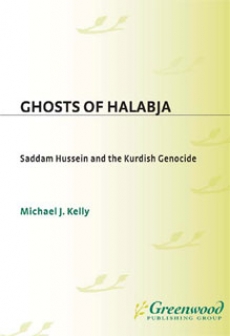| Foreword
Ghosts of Halabja. This title refers to a very specific crime - the chemical gassing of a Kurdish village in northern Iraq in 1988 by the forces of Saddam Hussein. He was to be tried for this crime before the Iraqi High Tribunal, but that trial against him will never take place. Saddam was executed in 2006 for the massacre of 148 men and boys from the town of Dujail. The attack on Halabja occurred during the Anfal campaigns, which were a military operation carried out against the Kurds of Iraq from 1987 to 1988. Saddam’s execution occurred half-way through his trial for the Anfals.
I was the chief investigative judge for the Iraqi High Tribunal. As such, it was my office that indicted Saddam Hussein and his cohorts for the Dujail massacre and the Anfal campaigns. I spent many hours questioning Saddam and learned to avoid his manipulative personality in order to learn what he knew and what he was responsible for in connection with the crimes for which he was charged. I also spent many hours and days in the field at mass graves and with survivors of his atrocities. These trials represented a great turning point for justice in Iraq. For decades, the Iraqi people were terrorized by secretive courts linked directly to Saddam’s regime. The chance to finally hold Saddam and his government accountable for what they had done was too great an opportunity to squander by killing him. Bringing him to justice in the best way possible would help reestablish the basic concept of justice for Iraqis and show them that everyone, even the most powerful person, would be held accountable eventually.
It is unfortunate that Saddam Hussein was executed in the manner that was carried out and it is unfortunate that the Anfal trial against him could not be completed. This history of the Kurds under Saddam’s regime that Professor Kelly has written helps to tell the story that could not be adequately told in court. The Kurdish people are strong and very resilient. Their culture as a part of Iraqi culture is very rich and their heritage is one of which they should be proud. Saddam’s regime could hurt them, and he did so grievously. But he could not bury their indomitable spirit. The courage and faith of the Iraqis in a better future should give us all hope—for a better Iraq and a better world.
Ra’id Juhi al Saedi
Former Chief Investigative Judge—Iraqi High Tribunal | 